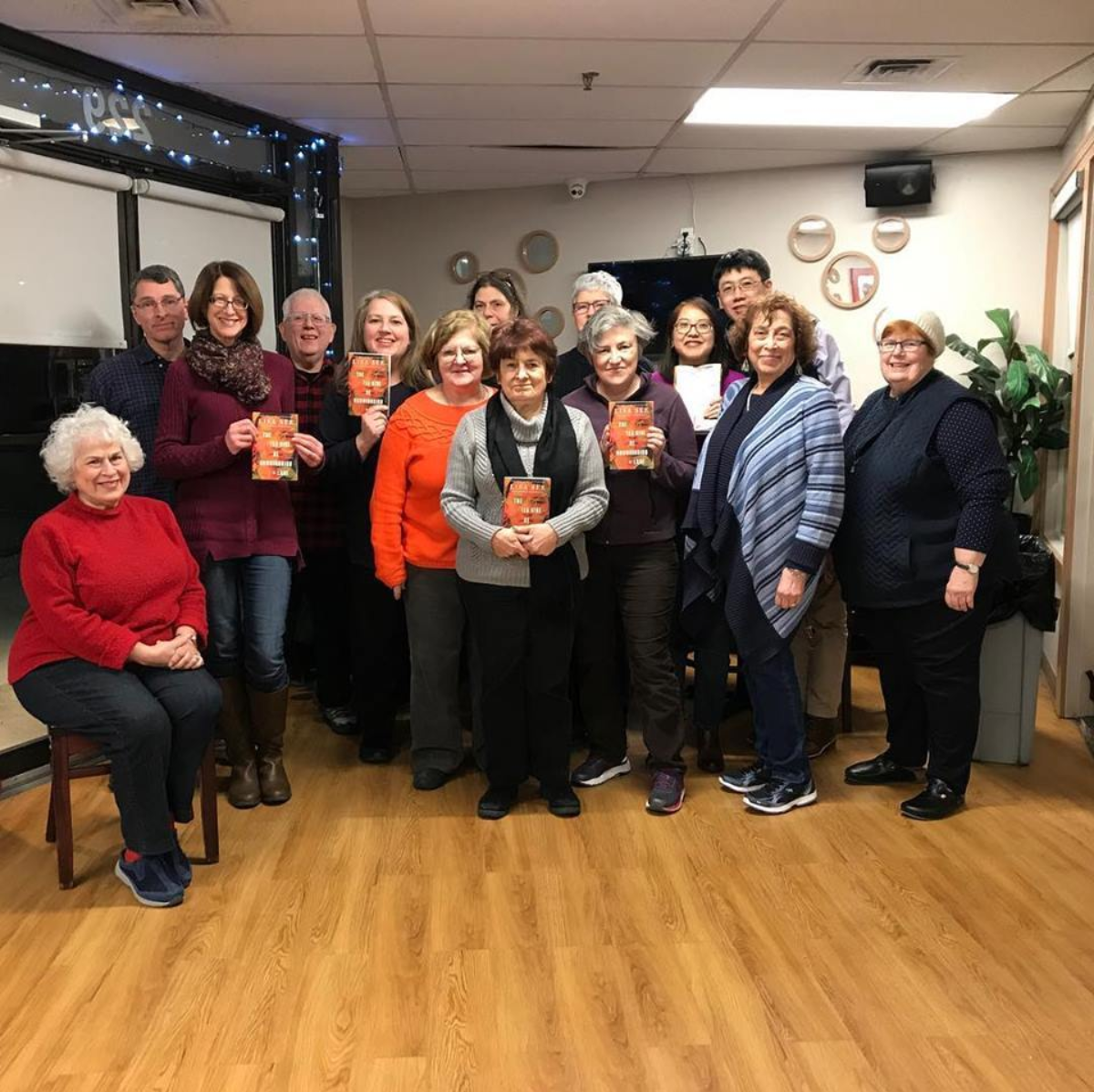
Attendees of the Malden Reads book discussion on the novel, Fahrenheit 451. Photo submitted by Anne D'Urso-Rose.
On Wednesday, February 12th, the Malden Reads organization hosted their book discussion on the novel Fahrenheit 451 at the Dockside Restaurant. The novel was chosen because it is the 2020 book selection for the organization. At the event, attendees had the opportunity to talk through various questions and speak about the different elements of the book.
Fahrenheit 451, written by Ray Bradbury, is set in a dystopian society where books are outlawed and are burned in order to control the spreading of harmful ideas. In addition, the novel tells the story about the protagonist Guy Montag, a fireman who begins to question the book-burning policy and further presents a tale of resistance.
The book discussion was led by MATV associate director and Malden Reads co-facilitator, Anne D’Urso-Rose, who expressed that the novel is “really a homage to books and literature” as she described that books are the “containers or archives for deep thoughts.”
She mentioned how during the discussion, thought-provoking questions such as “how would you describe the society portrayed in Fahrenheit 451?” and “what elements of the society resonate with today?” were asked.

D’Urso-Rose explained that before discussing the novel, many people “did not appreciate the depth of the story” until they began commenting on their ideas on it. She further added that quite a few attendees classified the book as science fiction which some did not enjoy reading. However, she “sensed a much greater appreciation for the book” after the discussion.
D’Urso-Rose continued on saying that Fahrenheit 451 “leaves a lot for one to ponder” because the story is ultimately a “cautionary tale as we look at the intrusion of media in our lives today.”
One of the attendees and Malden Reads steering committee member, Martha Bezzat, personally thought that “it was great to have an intellectual conversation” as these types of events help to benefit the community by gathering group of individuals “who like to connect, discuss, and challenge each other” on topics such as arts, culture, literature, and more.
Adding on to that thought, D’Urso-Rose stated that book discussions are important in terms of the way people form bonds “as they explore certain topics” and are given the opportunity to “bring in experiences from their own lives” into the discussion. Moreover, it is the “shared experience and the conversation that [is] generated” that help to establish these connections.
For Bezzat, a memorable idea of the novel was how the characters in the book were already disinterested in books along with new ideas even before the government had intervened in their society. It made her recognize that in some sense, people needed to remember to have “passion about life, [about] new ideas, and [about] experiences” so that they can all embrace “the joy and living there is to do in the world.”
Another one of the attendees Joe Gray, who is also a part of the Ward 6 committee, believed that the book discussion was “fascinating and engaging with questions” as they revolved around the ideas of “motivation or lack of motivation” that were shown by the various characters.
Gray expressed how stories like Fahrenheit 451 has made him learn how to appreciate the book’s “theme of humans who are destined to repeat the errors of history” by burning the records of books that “contain the knowledge of history.” He said that the novel can essentially “inspire people to not repeat mistakes of the past.”
Ultimately, D’Urso-Rose recognizes that only a small percentage of Malden’s population attends the book discussions held by the Malden Reads. However, she overall finds it pleasing how she hears many conversations that “take place among families, friends, and the community” after the events which fundamentally motivates the committee to do the program “year after year.”




